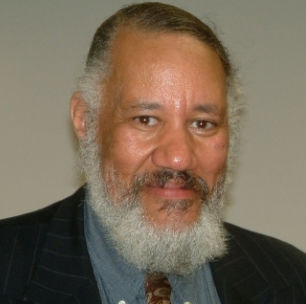
James H. Kelch, Jr., one of the inaugural professors at Temple’s School of Social Administration, passed away on Nov. 25 at age 85. Across 40 years, Kelch taught social work and social justice to more than 6,000 undergraduate and graduate students. He retired in 2000, then continued to teach a class each semester through 2008 as an adjunct professor in what had become the School of Social Work.
“Jim truly lived the social justice and human rights foci of social work,” says Lois Millner, associate professor emerita in the School of Social Work, who met Kelch when she joined the faculty in 1992. “He was a brilliant man who understood the depth, causes, and traumas surrounding racism and inequality. He spoke eloquently and with striking clarity in his classrooms and everywhere he could to unravel and address community and policy issues necessary to create social justice. Jim was a dynamic and caring teacher who had a profound influence on the world views of his students. He encouraged his students to make a real difference in the world, and his influence has resulted in the betterment of the communities with whom his students serve.”
“There is that socially driven aspect to it,” Kelch said in a 2017 interview. “We believe we can mentor people who will use their professional practice to change society. The work that social workers do impacts every facet of life. My emphasis was always on the societal impacts of ideas and forces, and how things could be made better for the ordinary person.”
Kelch was born on June 9, 1938, in Philadelphia’s Germantown section, the youngest child and only boy of five children. He lived in the Wynnefield neighborhood of West Philadelphia with his wife Beverly, who was a Temple alumna and a teacher at the High School for Creative and Performing Arts, and their three children. As a member of Temple’s faculty Kelch represented the university to the outside world. In 1969 and 1970 he met with community members to help the university address their concerns as it sought to expand its footprint in North Philadelphia. In 1976 he co-chaired the university’s committee to participate in Philadelphia’s bicentennial celebrations.
After the passing of Kelch’s wife Beverly, her family established the Beverly Gail Barnes Kelch Memorial Lecture Series, and Kelch brought a diverse range of speakers to Temple’s campus.
“Social workers have to be multifaceted,” he said in 2017. “The lecture series addresses many different areas of life....I hope it broadens our outlook, so that when we come across a new situation, we’re able to say, ‘Ah, that lecture I heard—it might have some bearing on what’s going on here.’”
“When you were with Jim, his smile lit up the room. He had a fabulous sense of humor and gave those of us lucky enough to know him the gift of laughter,” Millner recalls. “He had the rare ability to make you feel like you were truly important when in his presence. We have lost a shining light of kindness and social justice, but his legacy will survive. His memory will always be a blessing to me.”
“Jim was a great person who gave much and asked for nothing,” recalls Valarie Clemmons, director of practicum education at the School of Social Work, who knew Kelch as a student and then as a colleague. “His wisdom over the years was a guiding force for me as I started my career at the School of Social Work. The Temple University School of Social Work family and friends will miss him.”
